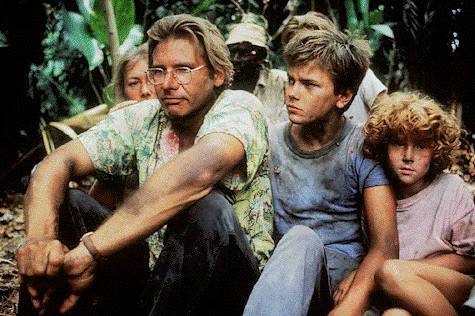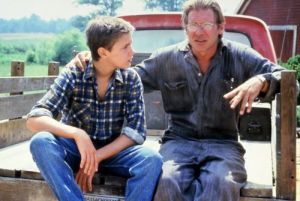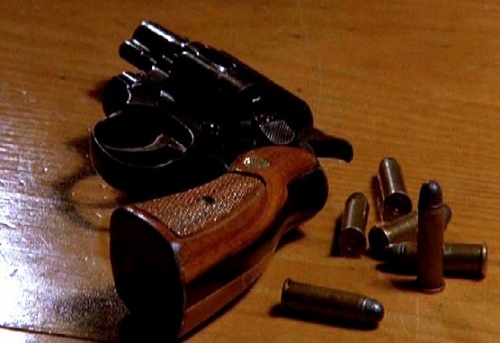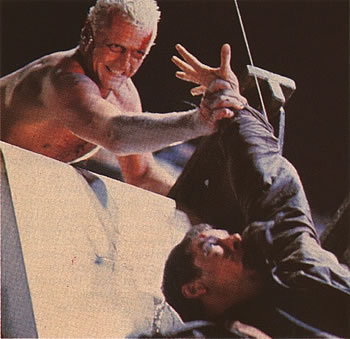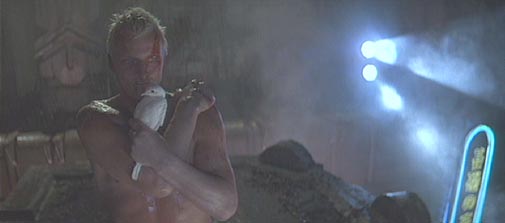

Mosquito Coast and Witness are two completely different movies with very different concepts. Yet, they both favor when it comes to the children having more wisdom or sense than their patriarch figures. In Witness, a child Samuel Lapp witness's something that very few, if any in his Amish community have seen. He becomes the witness of a murder and now he has lost some sense of his innocence. By viewing such a heinous act, he surpasses some of the wisdom of his grandfather. Samuel is learning how to be a respectable Amish man, but because his father is deceased, Grandfather Lapp is rearing him to be such. In the scene where Samuel is sitting on his grandfathers lap and telling him about he gun, Samuel surpasses his grandfathers wisdom with what he says. This scene's character and dominant proxemics s very interesting. The lighting is deem yet, it illuminates onto Samuel. The fact that the lighting emphasizes Samuels face, shows that he is maturing far past his grandfather's expectations. At this point Grandfather Lapp is explaining to Samuel that man has no right to kill each other. Under any circumstance for God makes life and death decisions. However, through Samuels experiences he feels otherwise. Little Samuel Lapp believes that a bad man should be killed, for the simple fact that they are bad. Of course. this way of thinking is not in accordance with the Amish values. At this point Samuels knowledge goes beyond his grandfather's. This is because Samuel experienced fist hand what bad men do, but his grandfather has not yet experienced something so life changing.

